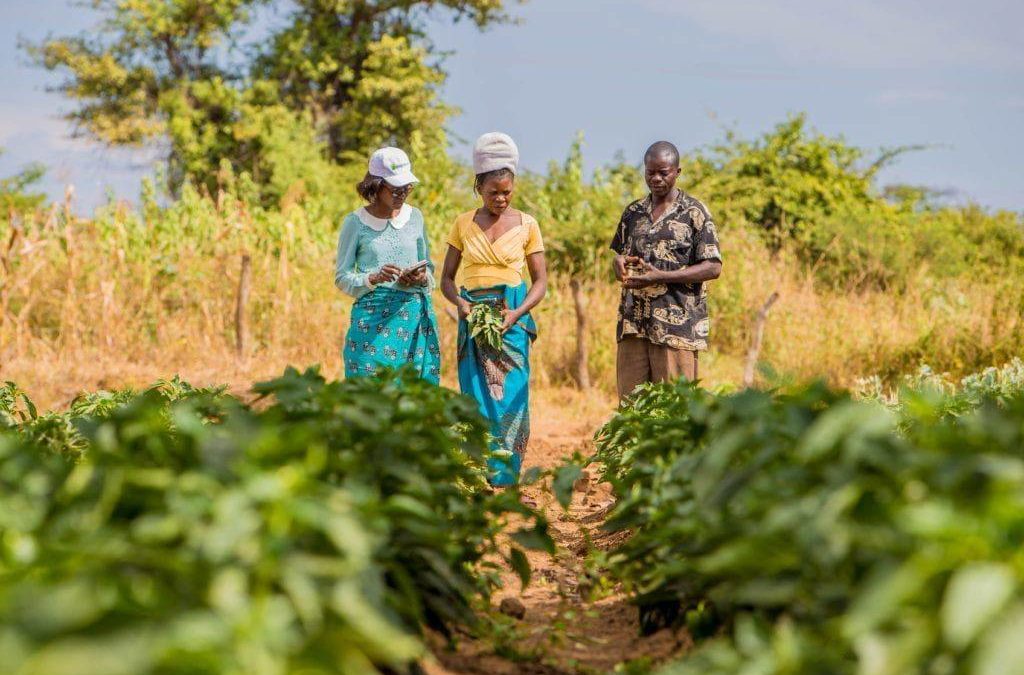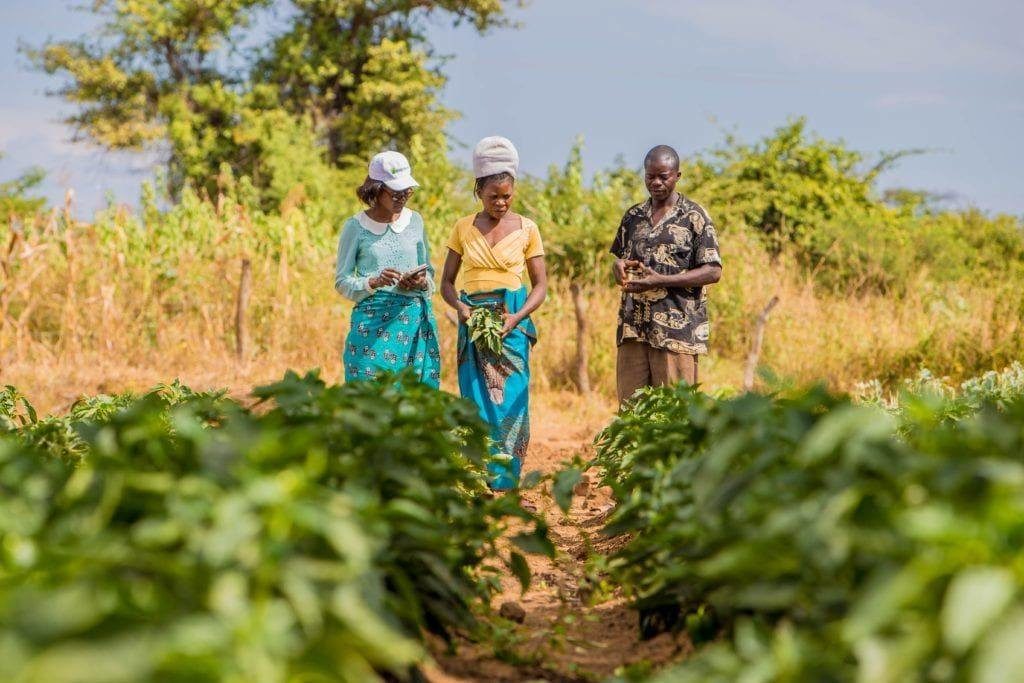Demand-driven plant health advisory services to farmers
This blog is a submission to the Community of Practice on Data-Driven Agronomy’s blog competition on digital extension—an opportunity for those working in the digital extension in agriculture field to share their experiences with their technologies, business models, key challenges, and major bottlenecks, as well as how they solved such challenges, when creating and implementing innovative solutions.
Plantwise is a flagship project under the Centre for Agriculture and Biosciences International (CABI). Plantwise plant clinics offer demand-driven plant health advisory services to farmers across 33 countries globally, 12 in Africa. Farmers visit these clinics with diseased plant samples and the plant doctor, who is a trained extension officer, gives a diagnosis and provides recommendations to manage the current problem, and prevent its recurrence in future. During the inception phase of the Plantwise programme, all plant doctors used paper prescription forms to record diagnoses, recommendations and other farmer and plant sample information. A copy of the prescription form would be issued to the farmer, and another copy sent to the data center for entry and subsequent uploading to the central database, the Plantwise Online Management System (POMS).
As the Plantwise programme evolved, the paper prescription form was replaced with an electronic version in form of an application, the Plantwise Data Collection Application (DCA), running on Android devices. This led to the evolution of what is now known as “Plantwise e-plant clinics.”
The plant doctor fills in the electronic prescription form at the plant clinic, and sends diagnoses and recommendations to the farmer in form of short message service (SMS). The completed form is submitted to the POMS database in near real-time; this means that plant health data is made available for decision making while it is still relevant. Consequently, any incidences of new pests are flagged in good time and follow-ups made.
The DCA has drop-down lists that eliminate the need to type in text, and this translates to better quality data that takes less time to clean. It also saves the plant doctor’s time at the clinic, further enhancing efficiency as the farmer is served in less time. In addition to the DCA, the plant doctor’s device has other apps installed, such as the Plantwise Factsheet Library app, that has a wealth of resources on plant health and general agronomy, and the Pest-smart Diagnostic simulator that aims to enhance plant doctors’ diagnostic capacity. This means that the plant doctor is able to give better quality and more comprehensive advice to farmers at the clinic.
The DCA also allows submission of data with photos of the plant health problem under consideration, and this aids in validation of the data. Further, the Telegram app is installed on plant doctors’ devices and plant doctors from each country recruited into one Telegram group. These country-specific Telegram groups aid in peer-to-peer diagnostic support and troubleshooting any issues with use of the DCA and other apps installed on the devices.
Plant doctors capture photos of any plant health problems they find particularly difficult to diagnose and post these on the Telegram platform. In the event that they encounter difficulties with any of the apps, they capture screenshots with a brief explanation of the problem and post on the platform.
In addition to peer to peer support, there are also plant health experts and CABI-Plantwise staff present on these platforms to provide further support to plant doctors as necessary. Plant doctors in one of the Telegram platforms give lectures on agreed pest problems—in this case the plant doctor giving the lecture conducts research on the pre-specified pest problem and shares the knowledge with other plant doctors on a pre-agreed time. There is opportunity to ask questions and seek clarifications and this enriches the discussions.
What are the biggest challenges you have faced? How did you overcome them?
Among the challenges faced in rolling out e-plant clinics is the need to equip every plant doctor with a tablet computer running an Android version that is compatible with the DCA. CABI Plantwise continues to partner with other organisations in the agricultural development sector to equip plant doctors with these devices. Plant doctors who have smartphones are encouraged to install the DCA on these devices.
Additionally, some plant doctors also initially find it a little challenging to use tablets, but with the hands-on training offered by CABI-Plantwise, constant troubleshooting and peer-to-peer support they eventually gain confidence.
Newly trained plant doctors also experience challenges with body language, where they often focus so much on filling in the form at the expense of actively engaging the farmer. This issue however gets resolved with time, as plant doctors gain more experience in operating the devices and using the DCA.
In your opinion, what is the main opportunity for digital extension services? What recommendations would you make in order to realize this opportunity?
In order for digital extension approaches to benefit the target clientele, they need to be user-centered and must respond to a felt need. This means that the end users need to be involved in the process of developing such tools and their feedback taken into consideration.
The developers of these digital tools also need to have a thorough understanding of the context within which the tools are expected to be used. For instance, it is not realistic to build an application that requires internet connectivity to attain its full utility if the target users are farmers in rural settings.
A case in point for the development of digital extension tools is the Plantwise DCA, whose development was very user-centered; plant doctors were involved in thorough testing of the prototype in a highly iterative and participatory process. The result is an application that meets user needs and serves the purpose for which it was built.
***
Photo: CABI. Three farmers walk in a field near Machakos, Kwenya, 50 kilometers outside Nairobi.
Click here to view the full list of articles competing in the digital extension services blog competition.
January 20, 2020
Idah Mugambi
Knowledge and Data Management
CABI
52 - 52Shares
Latest news
52 - 52Shares







This is revolutionary